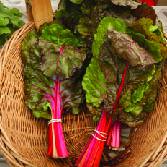-
CATEGORY ::
- All Seeds /
- All Flower Seeds
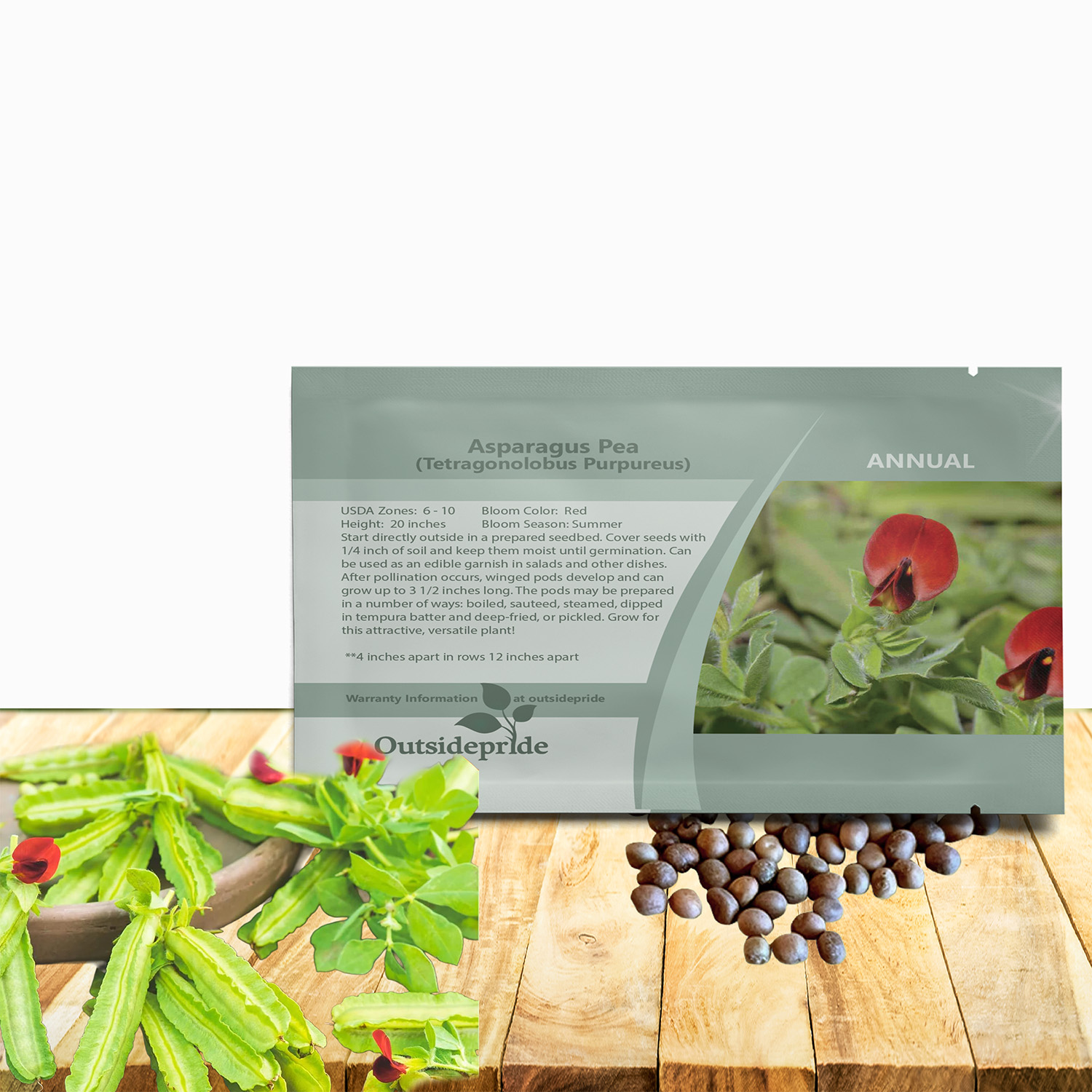

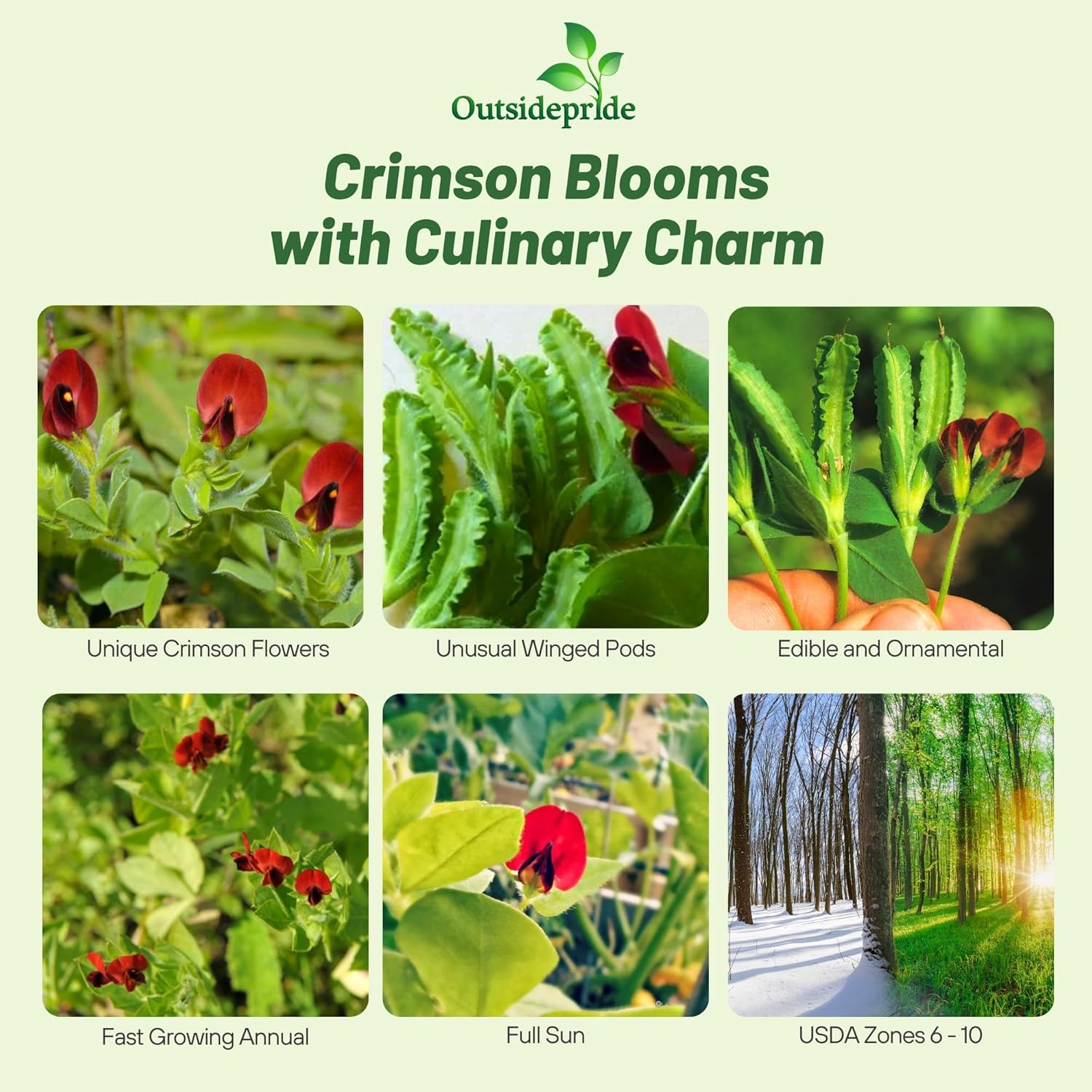
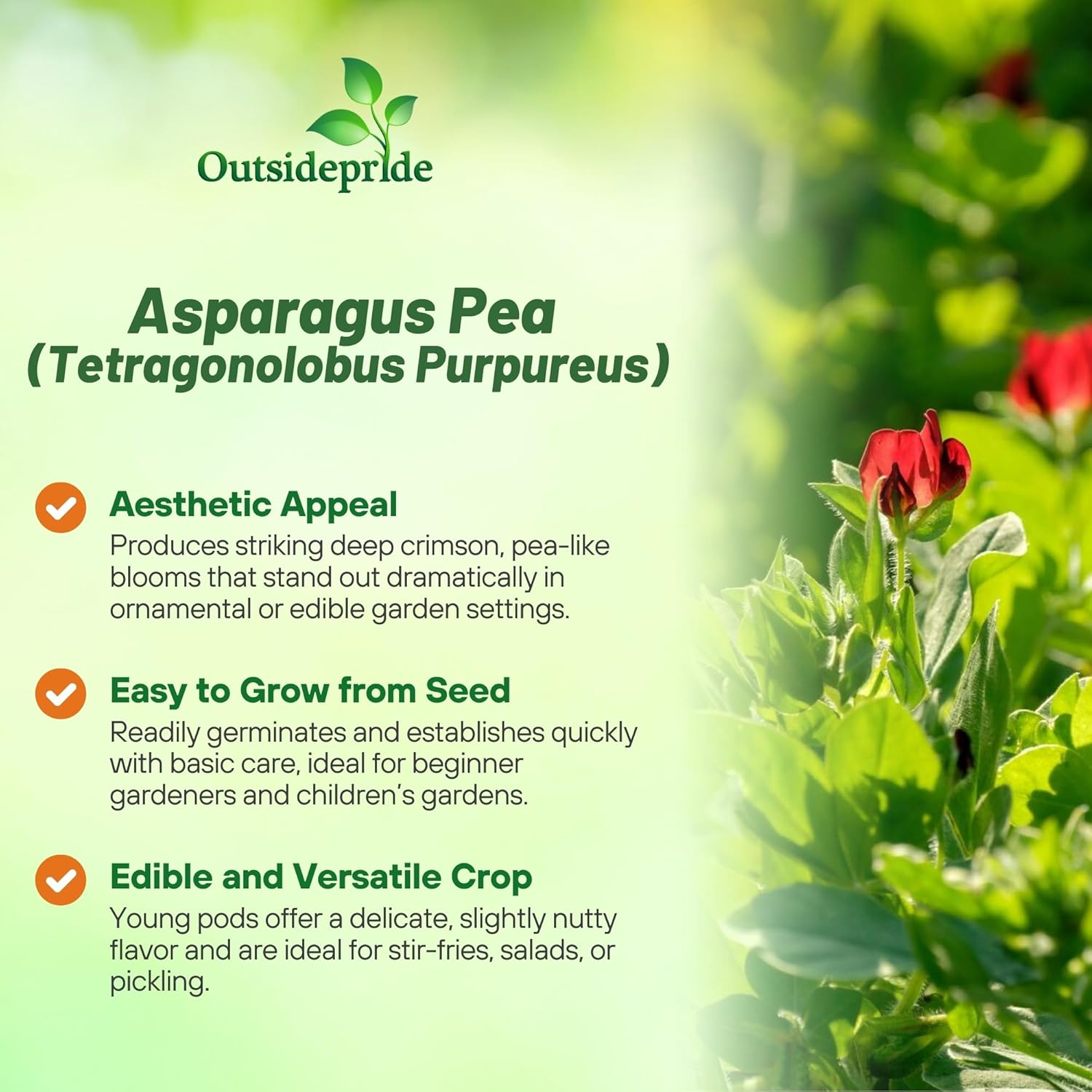
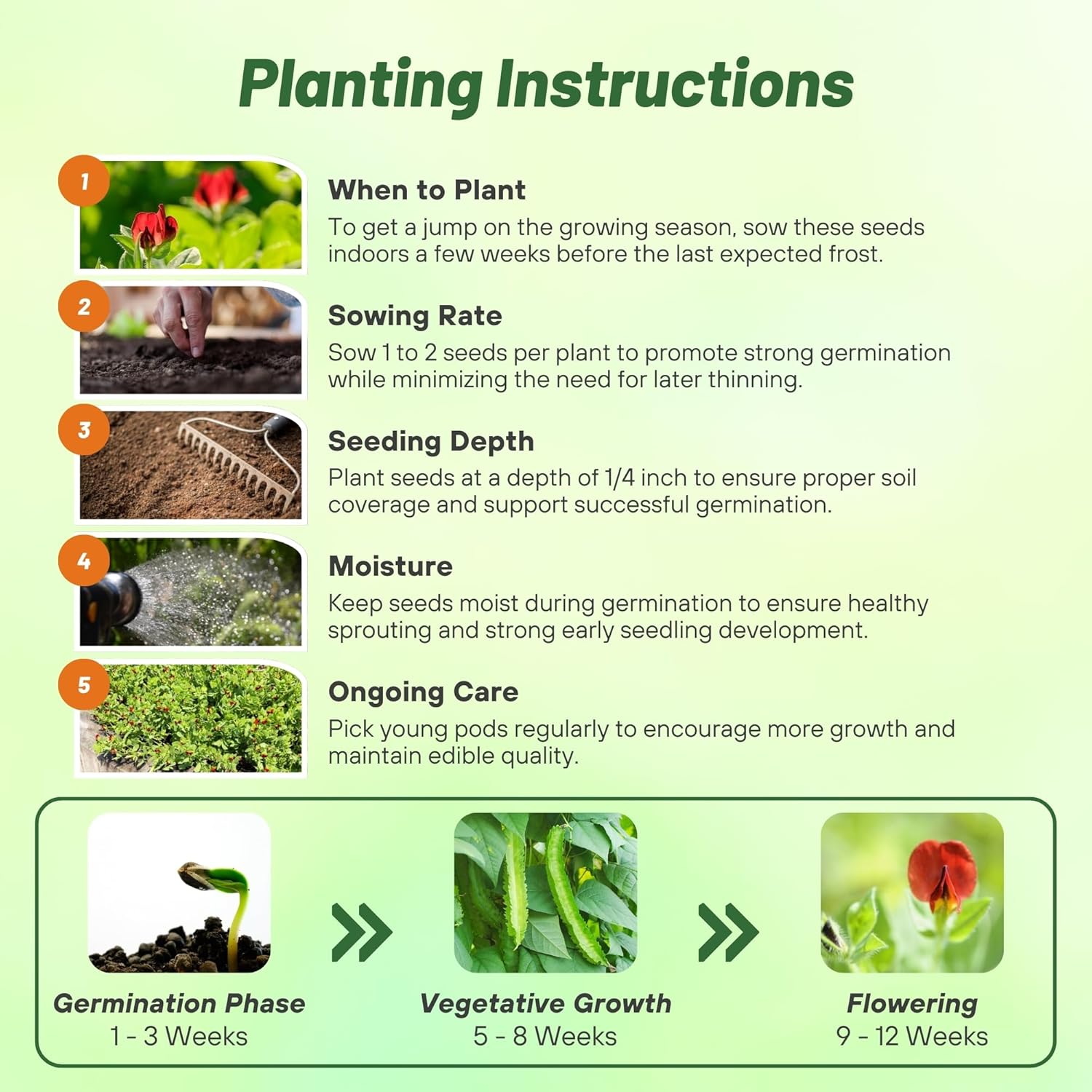

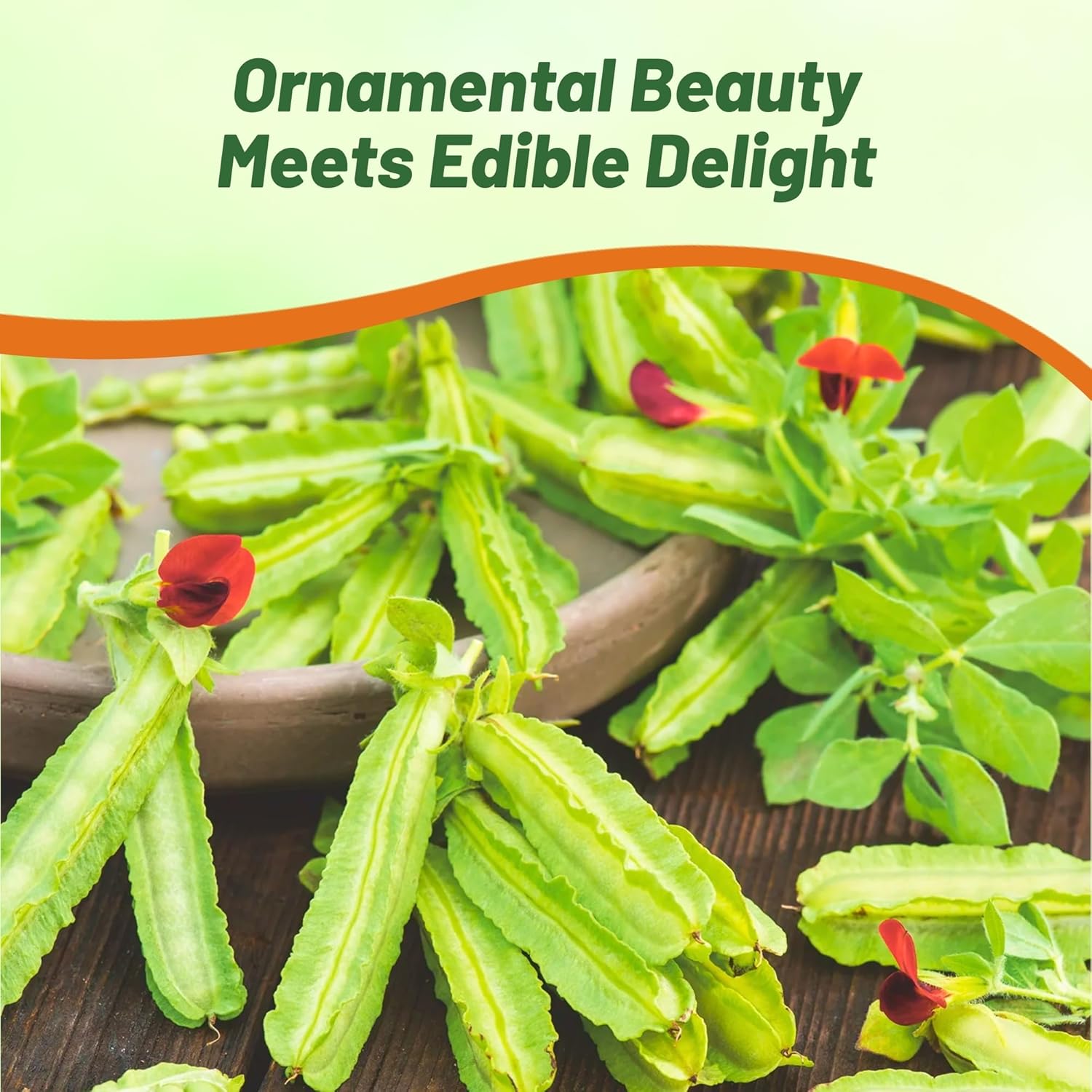

Asparagus Pea Vegetable Seeds
About...
Asparagus Pea (Tetragonolobus Purpureus) - Asparagus Pea seeds can grow one of the prettiest vegetables on the face of the earth! It is an herbaceous annual that is native to the Mediterranean region of southern Europe. It is a common spring-blooming wildflower in field and scrub.MORE FLOWER OPTIONS
Planting Directions
TEMPERATURE
65 - 70F
AVERAGE GERM TIME
10 - 21 days
LIGHT REQUIRED
Yes
DEPTH
1/4 inch
SOWING RATE
1 - 2 seeds per plant
MOISTURE
Keep seeds moist until germination
PLANT SPACING
4 inches apart in rows 12 inches apart
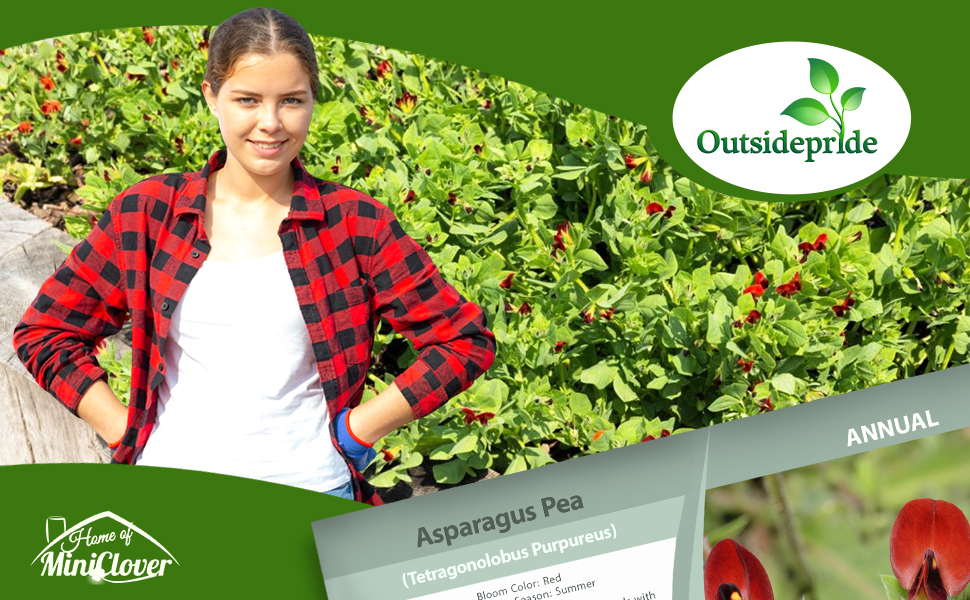
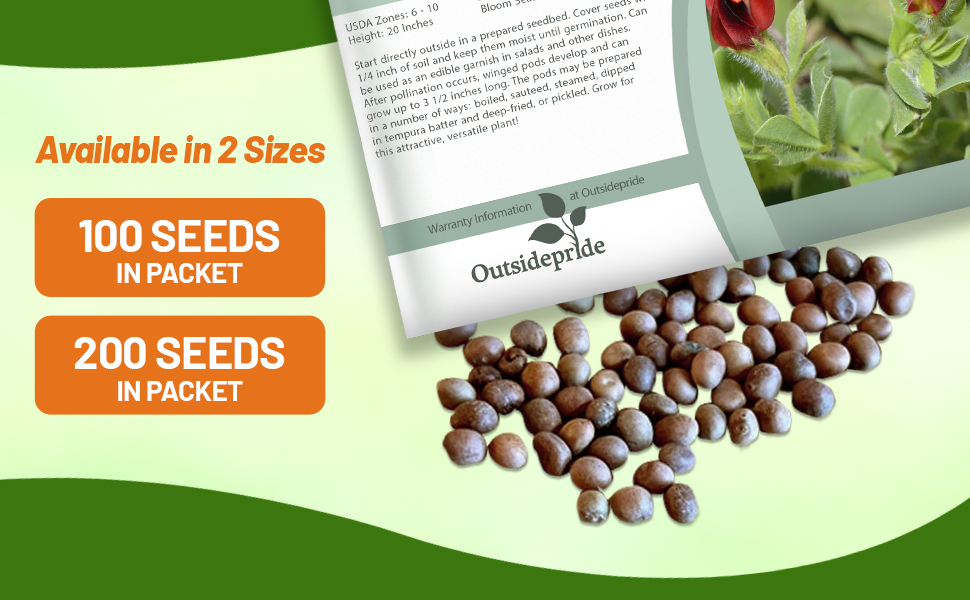
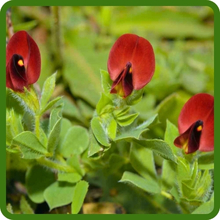
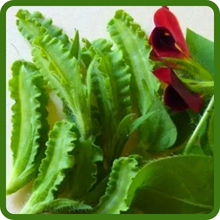
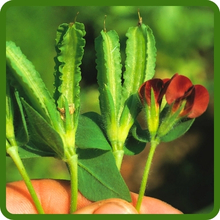
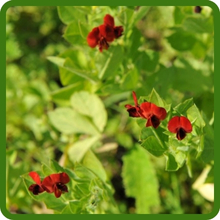
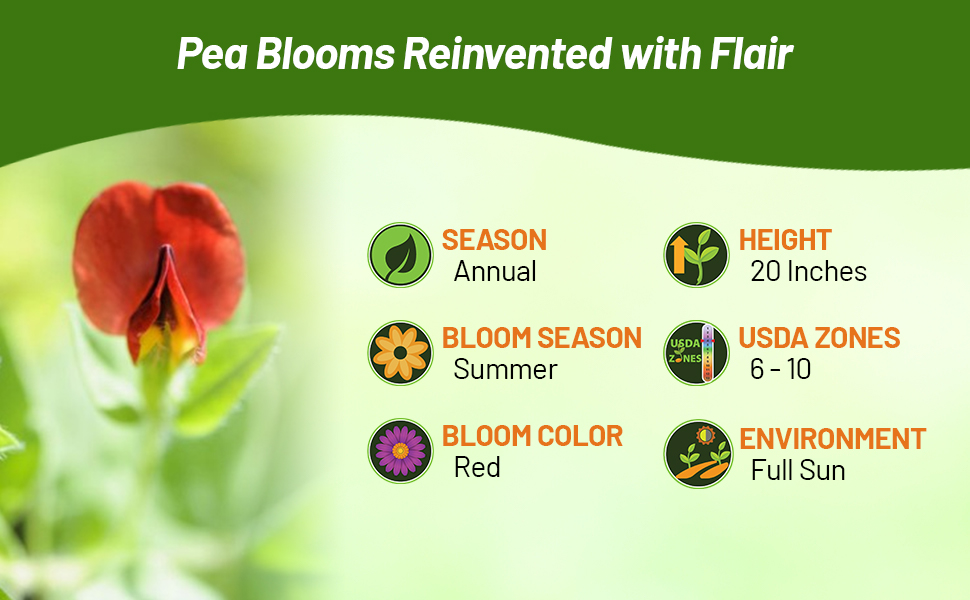
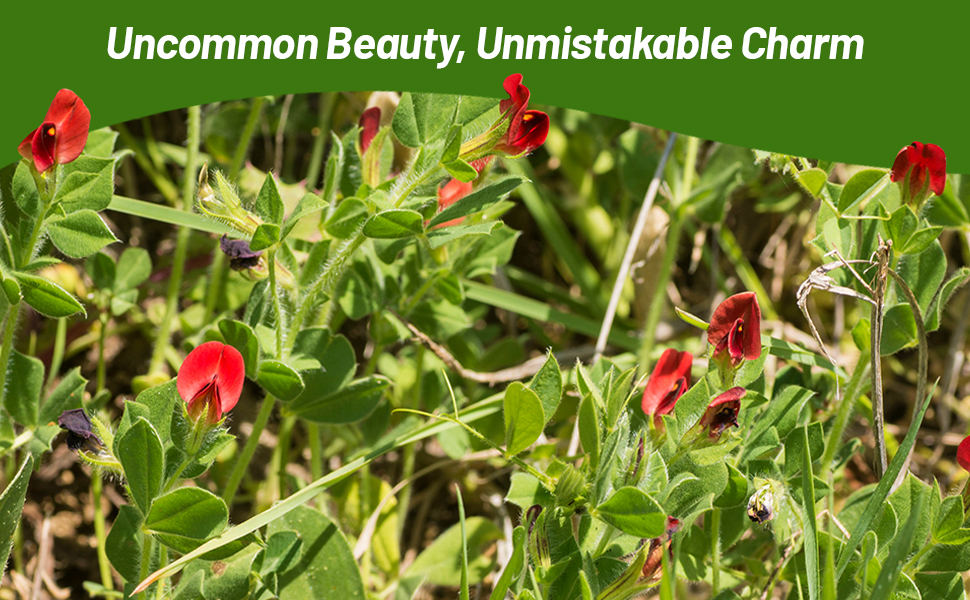
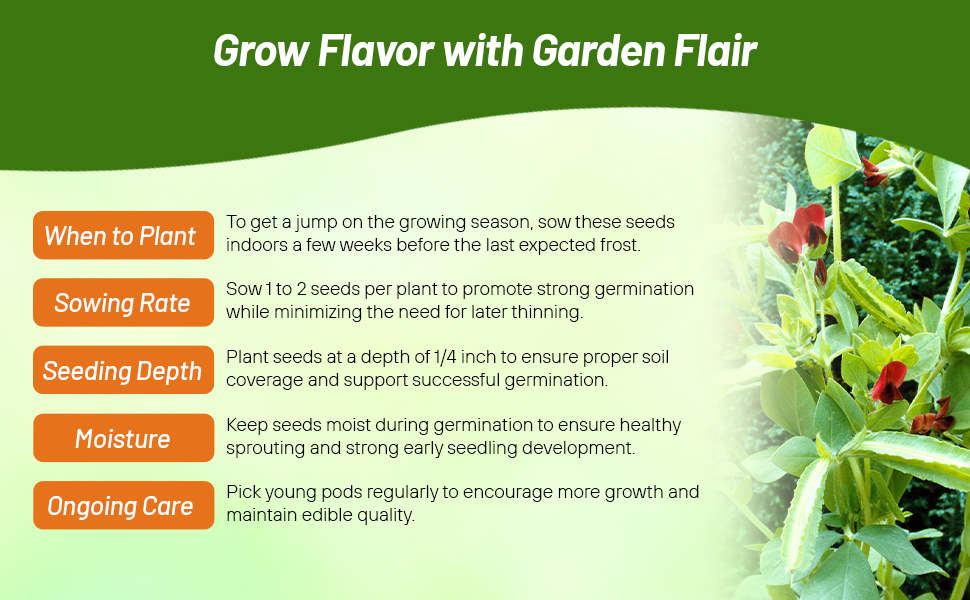
Asparagus Pea (Tetragonolobus Purpureus) - Asparagus Pea seeds can grow one of the prettiest vegetables on the face of the earth! What does asparagus have to do with this plant? There may be two possibilities for the common name: 1) The young pods taste similar to asparagus, or 2) The vegetable is prepared in the same manner as asparagus, by steaming and covering with butter. Another common name for Tetragonolobus purpurea is the Winged Pea because the pods that form have the appearance of having wings.
Asparagus Pea is an annual herb that is native to the Mediterranean region of southern Europe. It is a common spring-blooming wildflower in field and scrub. Winged Asparagus Pea is a legume that grows approximately 20 inches tall and 24 inches wide, the plant has small leaves that are made of 3 leaflets. It has deep crimson flowers which are formed in pairs, and they can be used as an edible garnish in salads and other dishes. After pollination occurs, winged pods develop and can grow up to 3 1/2 inches long. The pods may be prepared in a number of ways: boiled, sauteed, steamed, dipped in tempura batter and deep-fried, or pickled. Grow herb seeds for this attractive, versatile plant!
How To Grow Asparagus Peas: Start Asparagus Pea seeds directly outside in a prepared seedbed. Cover the flower seeds with 1/4 inch of soil and keep them moist until germination occurs.
Common Questions
Will asparagus pea attract any pollinators?
Yes, butterflies and bubble bees enjoy this flower nectar.
Can I grow in containers on my patio or balcony?
Yes, make sure you choose the appropriate size container and sow seeds between Mid-April and June. It is good to presoak your seeds before planting to speed up germination.
Can you eat asparagus peas raw?
Yes, you can eat them raw, they do not contain toxins such as raw beans do, even raw. For example, you can use them to spice up a salad.
Planting Directions
TEMPERATURE
70F
AVERAGE GERM TIME
14 - 21 days
LIGHT REQUIRED
Yes
DEPTH
Sow seed 1/8 inch deep
SOIL TYPE
Fertile, well draind soil from sandy loam to clay
SOWING RATE
Approximately 1000 seeds covers 20 square feet or 3 - 4 seeds per plant
MOISTURE
Keep seeds moist until germination occurs
PLANT SPACING
24 inches

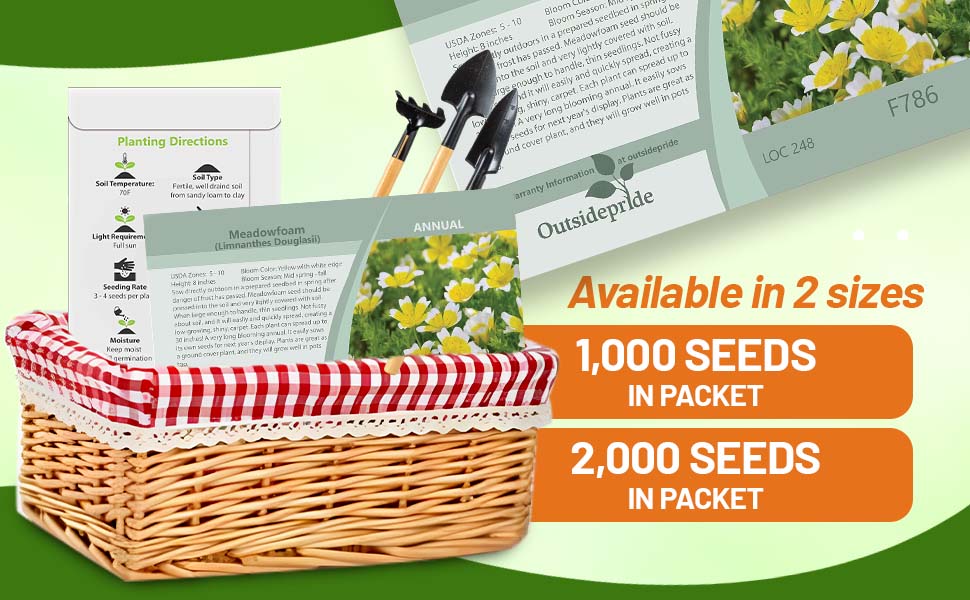

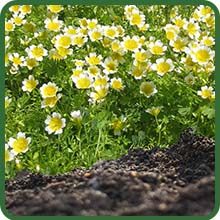

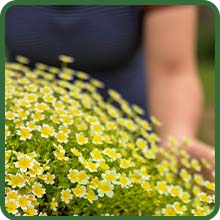
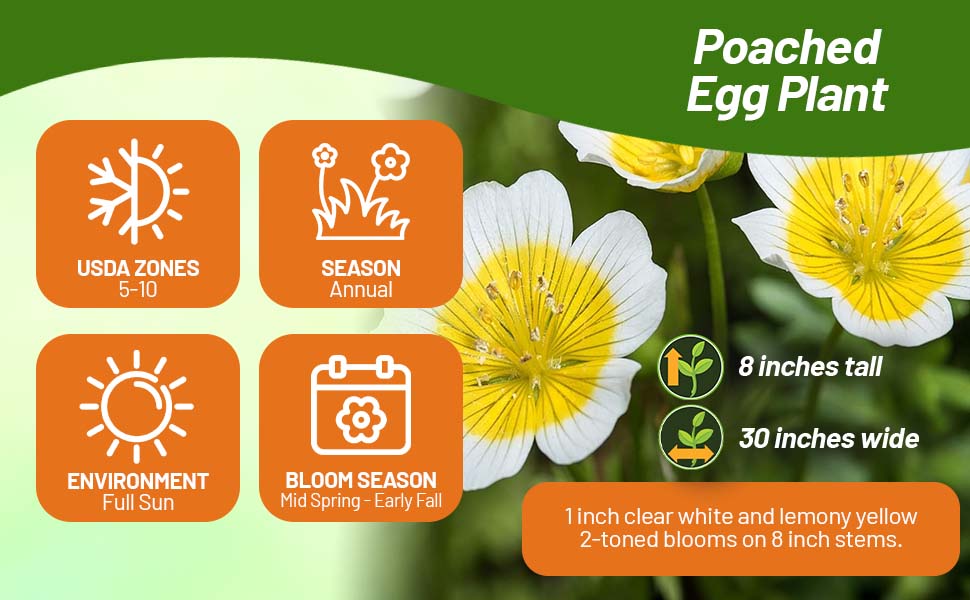
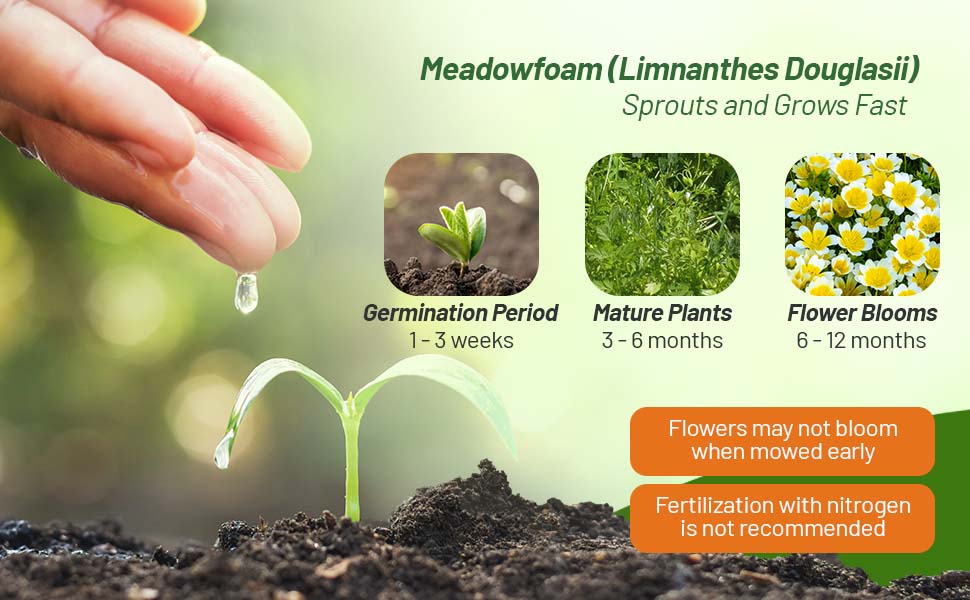
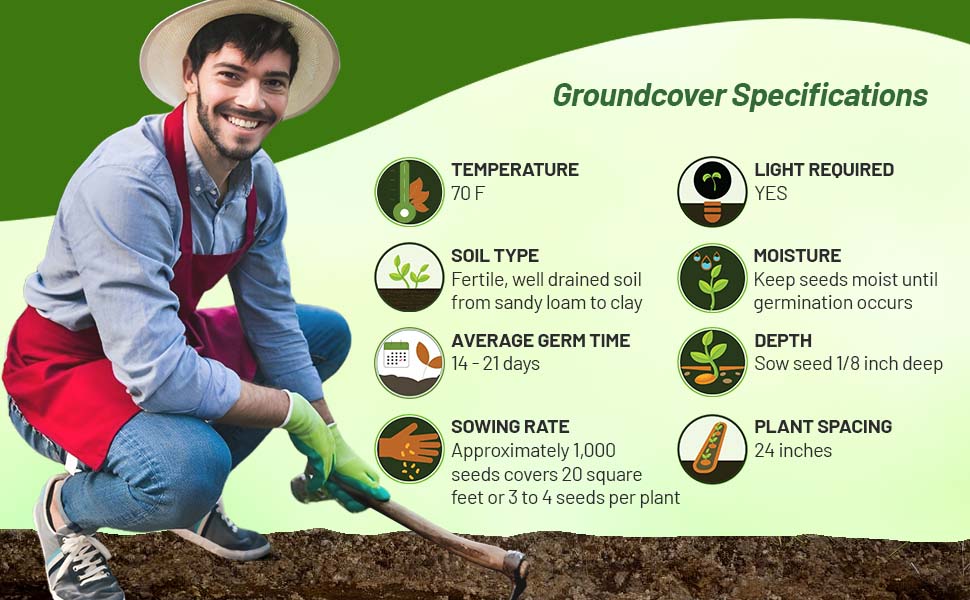
Meadowfoam (Limnanthes Douglasii) - Grow Limnanthes Douglasii seeds for this annual that is native to California. Limnanthes is commonly called Poached Egg Plant or Meadowfoam, and it is not only visually very striking and attractive, but it also has a very nice aroma as well. Limnanthes Poached Egg Plant is not fussy about soil, and it will easily and quickly spread, creating a low-growing, shiny, carpet. Each meadowfoam plant can spread up to 30 inches! Poached Egg Limnanthes is a very long blooming annual with a mass of charming, 1 inch clear white and lemony yellow 2-toned blooms on 8 inch stems. It easily sows its own flower seeds for next year's display. Meadowfoam plants are great as a ground cover plant, and they will grow well in pots too.
Sow Limnanthes Douglasii seeds directly outdoors in a prepared seedbed in spring after danger of frost has passed. Meadowfoam seed should be pressed into the soil and very lightly covered with soil. When large enough to handle, thin the Poached Egg Plant seedlings.
Common Questions
What are these flowers used for in the landscape?
These are great for beds and borders, city gardens, prairie gardens, cottage gardens and in containers.
Do these flowers attract any pollinators?
Yes, these flowers will reward your garden by attracting bees, butterflies and pollinating insects.
Do I need to prune at the end of their bloom season?
Yes, these should be pruned back after they are done flowering.
Planting Directions
TEMPERATURE
60 - 65F
AVERAGE GERM TIME
12 - 40 days
LIGHT REQUIRED
Yes
DEPTH
1/16th inch deep
SOWING RATE
2 - 3 seeds per plant
MOISTURE
Keeps seeds moist until germination
PLANT SPACING
10 - 12 inches
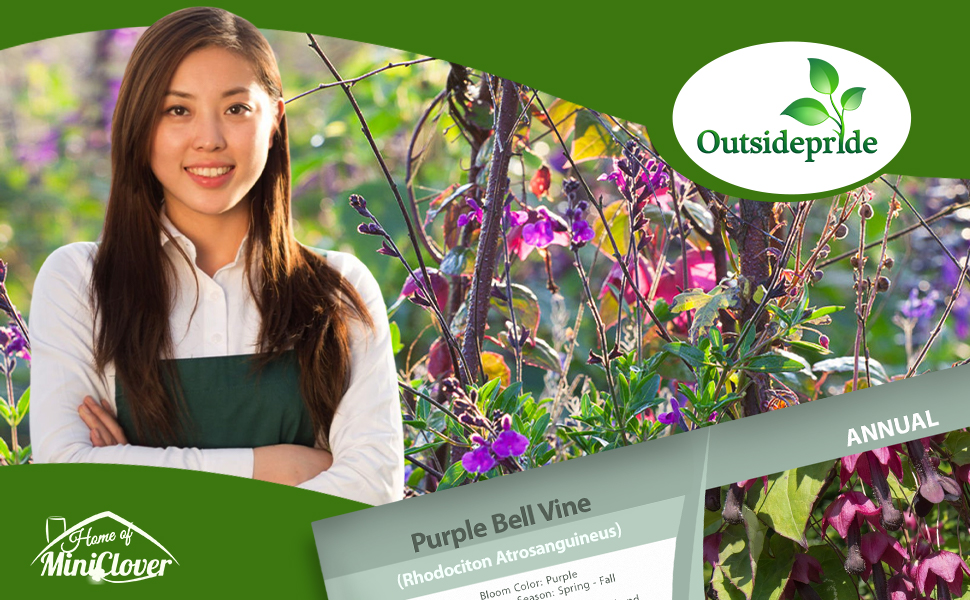
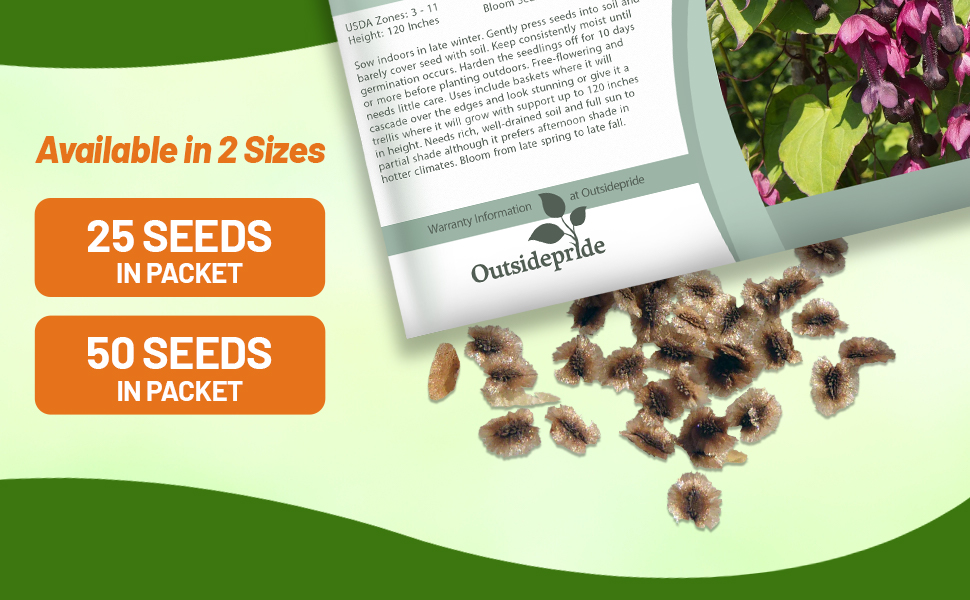
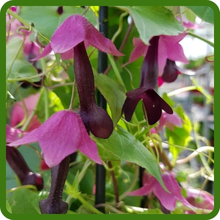
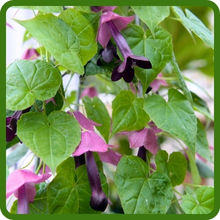
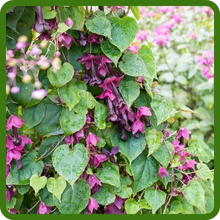
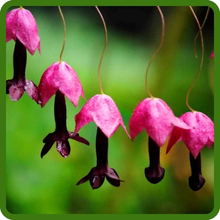
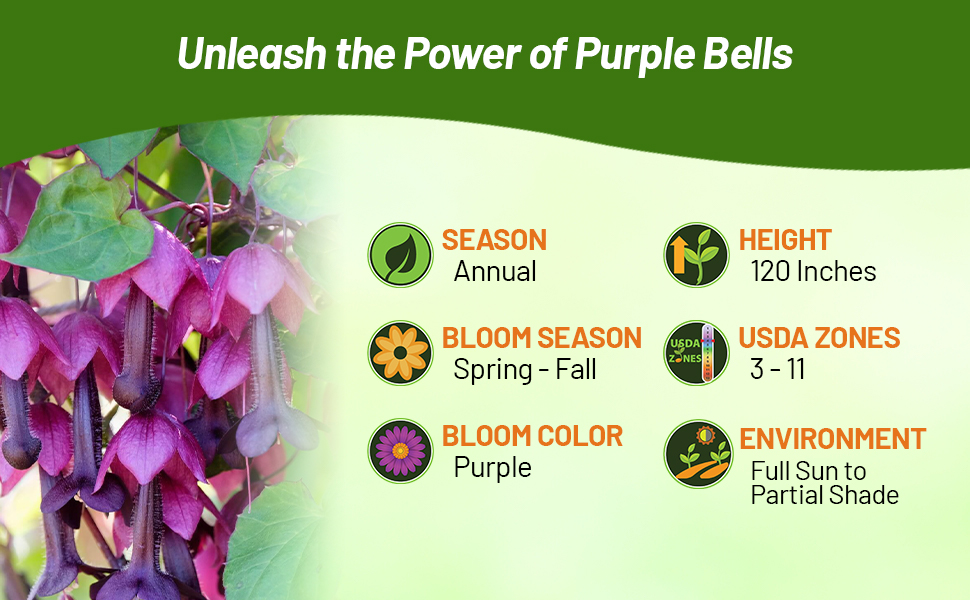
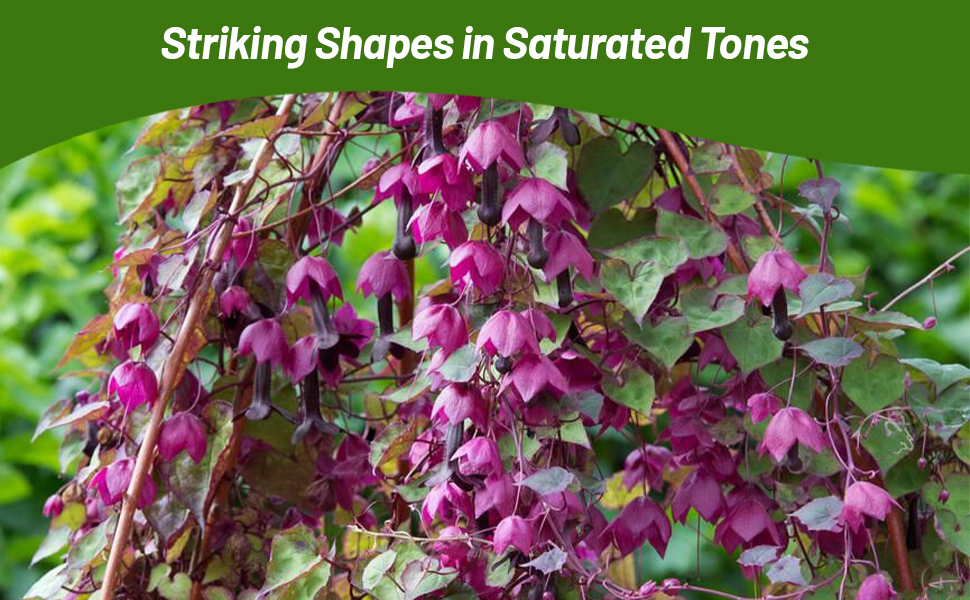
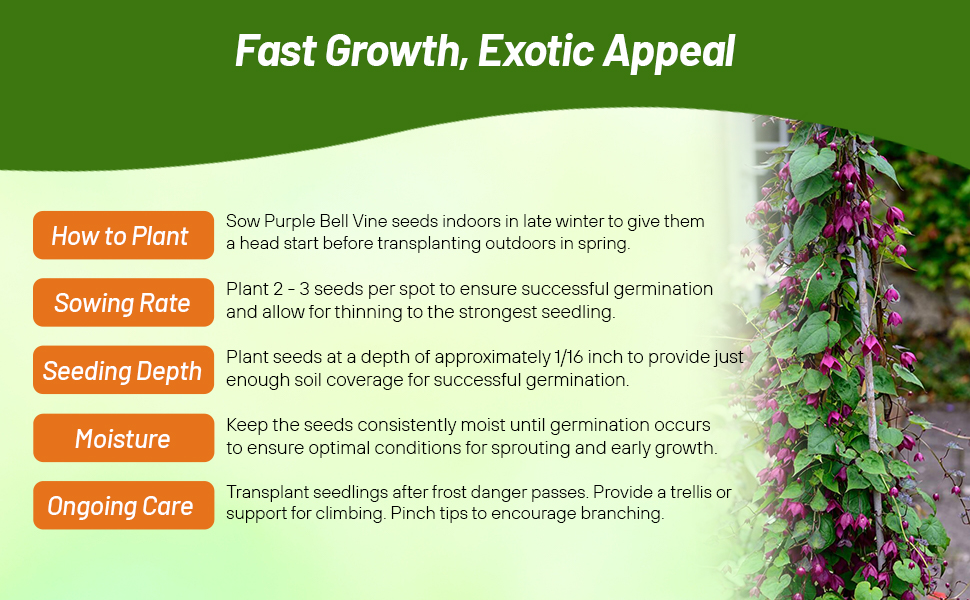
Purple Bell Vine (Rhodociton Atrosanguineus) - Grow Rhodociton Atrosanguineus seeds for an exotic vine that will have everyone's attention! Rhodociton Purple Bell Vine has heart-shaped leaves and dark purple bell-shaped flowers that dangle from thread-like stems. Bell Vine uses include baskets where it will cascade over the edges and look stunning or give it a trellis where it will grow with support up to 120 inches in height. Rhodociton Purple Bells needs rich, well-drained soil and full sun to partial shade although it prefers afternoon shade in hotter climates. Purple Bells bloom from late spring to late fall.
Sow Purple Bell Vine seeds indoors in late winter. Gently press the flower seeds into the soil and barely cover the seed with soil. Keep consistently moist until germination occurs. Harden the seedlings off for 10 days or more before planting outdoors. Purple Bell Vine is free-flowering and needs little care.
Common Questions
What type of structures can I use for this vine to grow up?
These are perfect for walls, trellis, pergola, fences or cascading from a hanging basket.
Are Rhodochiton flowers fragrant?
Rhodochiton flowers are not typically fragrant, but they are valued for their ornamental, bell-shaped flowers.
Do I need to prune my plants?
It helps to prune them back to maintain shape and encourage fuller growth.
Planting Directions
TEMPERATURE
73F
AVERAGE GERM TIME
14 - 21 days
LIGHT REQUIRED
Yes
DEPTH
Surface sow seed and press in to soil
SOWING RATE
7 - 8 seeds per plant
MOISTURE
Keep seeds moist until germination
PLANT SPACING
18 - 24 inches
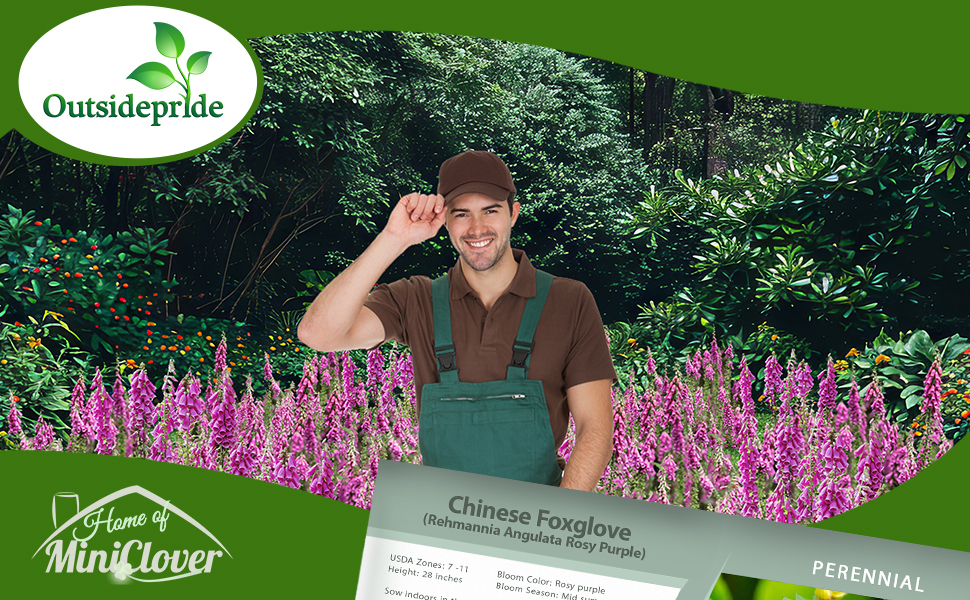
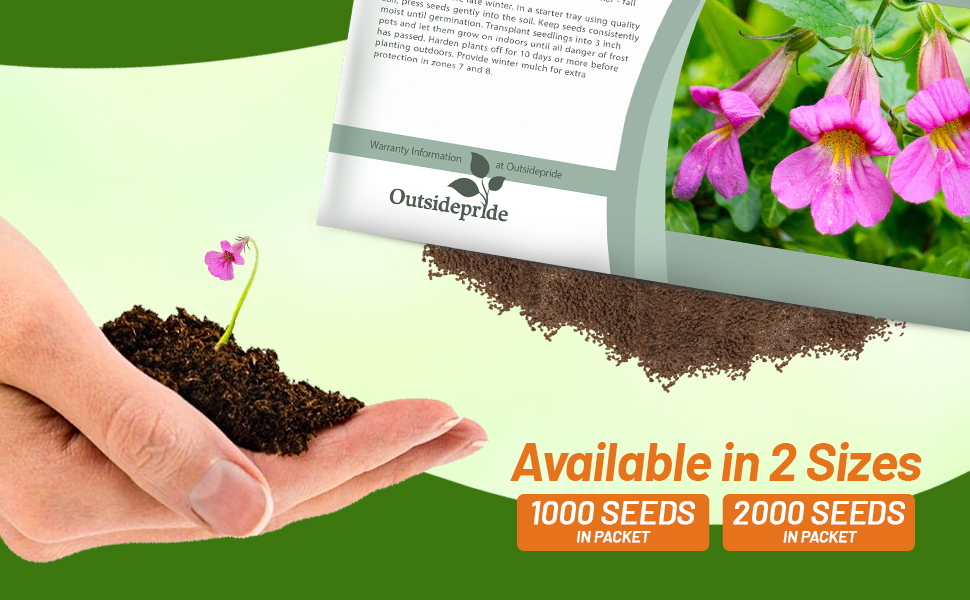
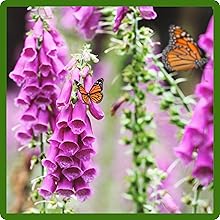
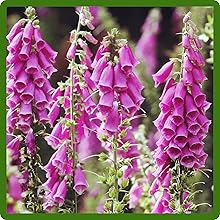
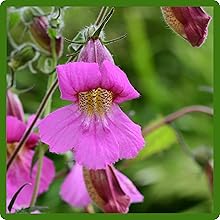

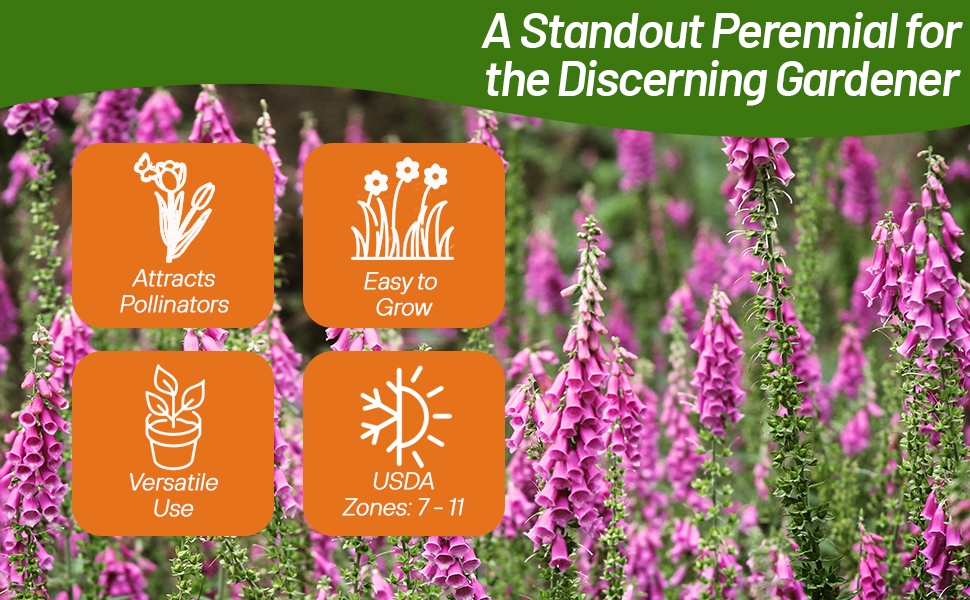

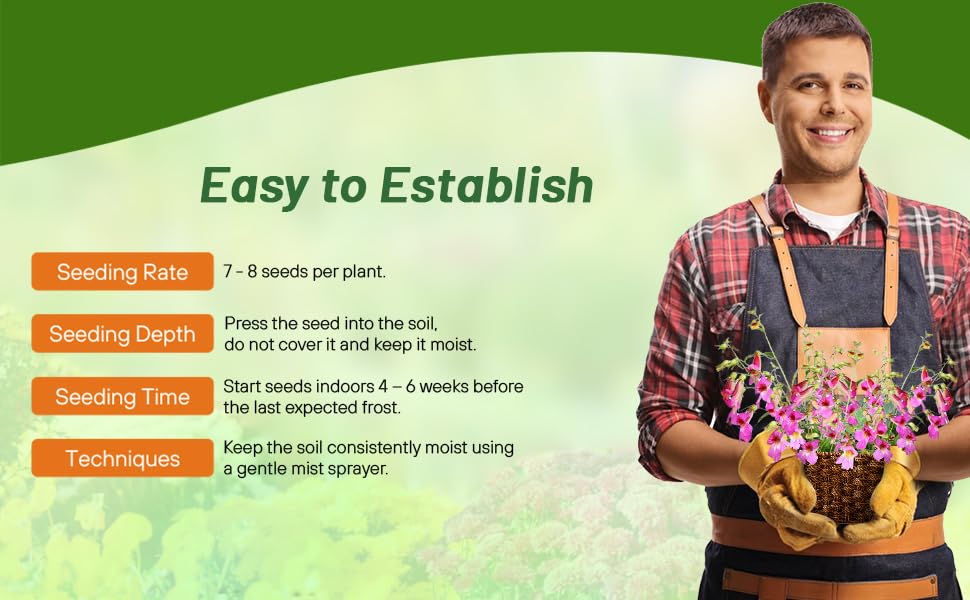
Chinese Foxglove (Rehmannia Angulata Rosy Purple) - Rehmannia Angulata seeds can be grown as annuals in all climates and as perennials in USDA zones 7 - 11. Commonly referred to as Chinese Foxglove, this beauty does well in full sun or partial shade, and the Chinese Foxglove plants continuously produce large, foxglove-like flowers from late spring through fall. The flowers can measure 2 - 3 inches across and are rosy purple with spotted throats. Chinese Foxglove is great in the flower border, and the flowers are nice for cutting. A synonymous botanical name is Rehmannia elata.
How To Grow Chinese Foxglove From Seeds: Sow the Rehmannia Angulata seeds indoors in the late winter. In a starter tray using quality soil, press the flower seeds gently into the soil. Keep the Chinese Foxglove seeds consistently moist until germination occurs. Transplant the Chinese Foxglove seedlings into 3 inch pots and let them grow on indoors until all danger of frost has passed. Harden the Chinese Foxglove plants off for 10 days or more before planting outdoors. Provide winter mulch for extra protection in zones 7 and 8.
Common Questions
Do I need to deadhead my flowers?
Yes, you will need to deadhead spent flowers to maintain plants vigor.
What are some good ways to use in landscape?
Flowers are wonderful for beds and borders, wall side borders, cottage gardens or city gardens are all great ways to use Rahmannia.
Do flowers attract any pollinators to the garden?
Yes, hummingbirds enjoy these flowers.
Planting Directions
TEMPERATURE
70 - 75F
AVERAGE GERM TIME
21 - 60 days
LIGHT REQUIRED
Yes
DEPTH
Surface sow and lightly cover 1/16 inch
SOIL TYPE
Grows in a variety of soil types from sandy loams to clay
SOWING RATE
Approximately 1000 seeds covers 20 square feet
MOISTURE
Keep seeds moist until germination
PLANT SPACING
12 - 18 inches
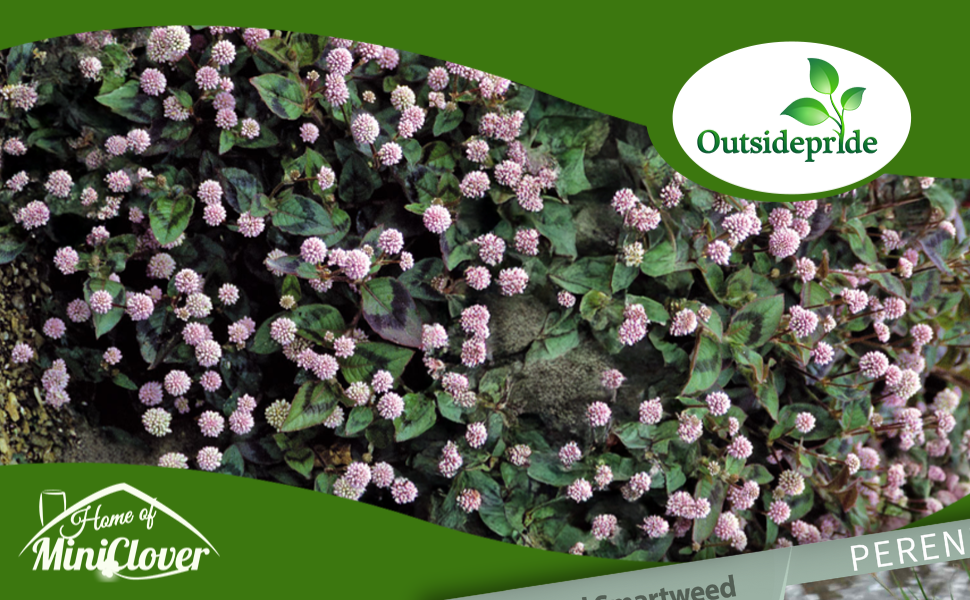
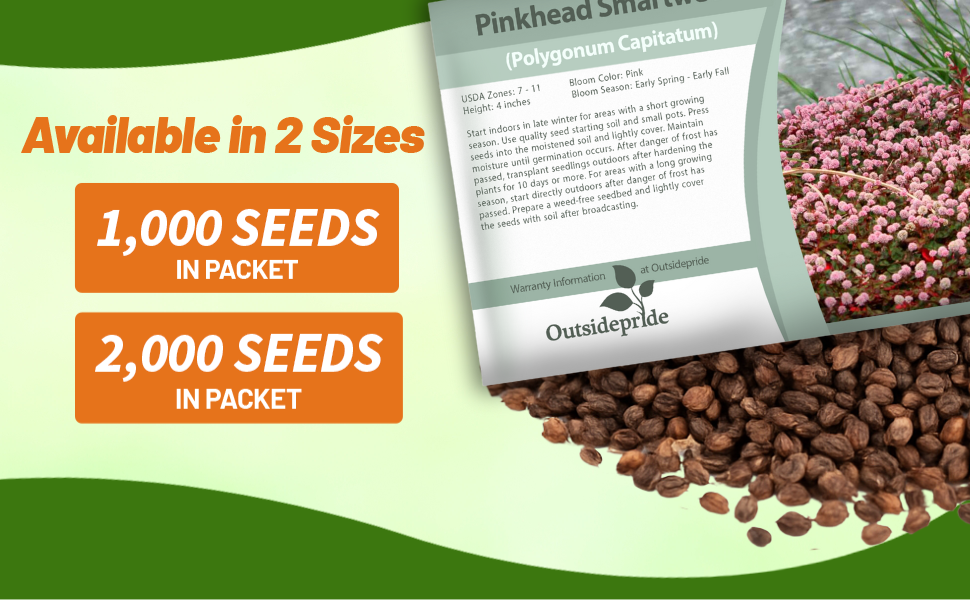
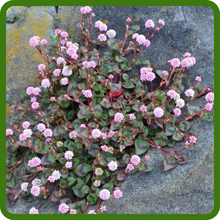
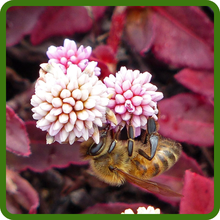
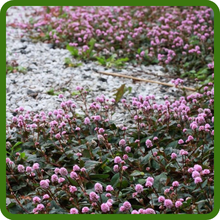
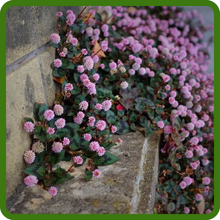
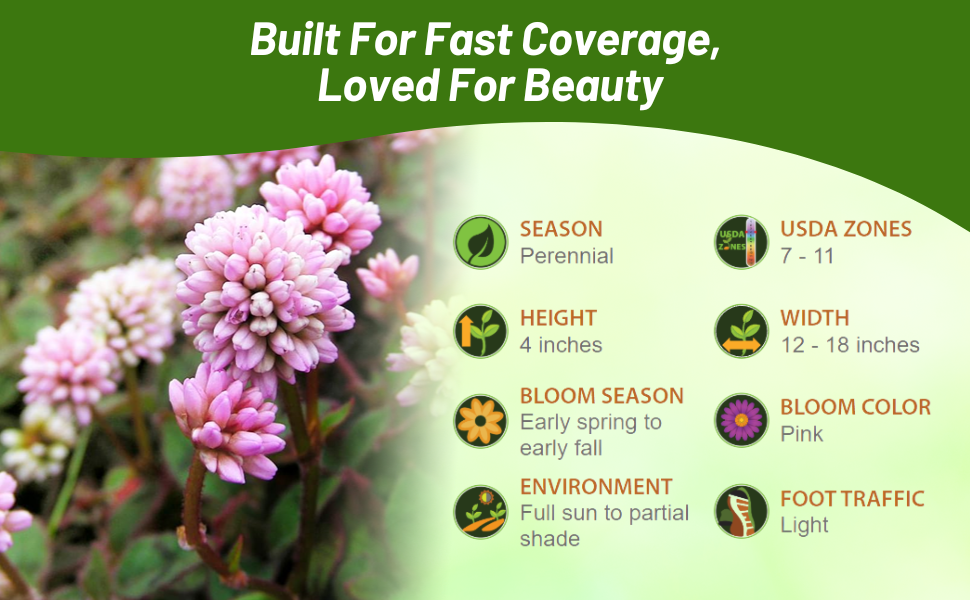
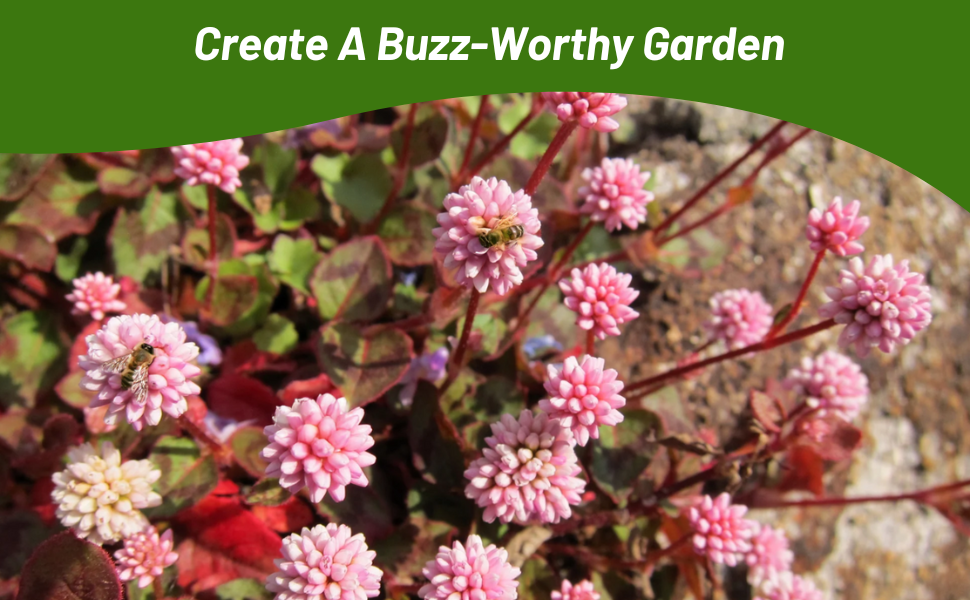
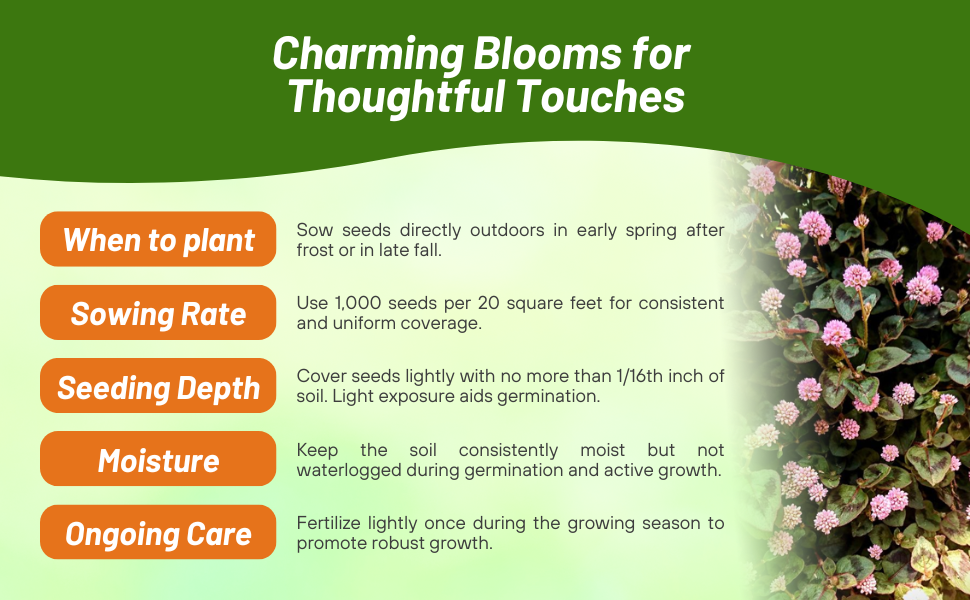
Pinkhead Smartweed (Polygonum Capitatum Punching Balls) - Polygonum Capitatum seeds can be grown to form a low-growing, spreading ground cover. A synonymous botanical name is Persicaria Capitata, and it has many common names: Pinkhead Smartweed, Pink Knotweed, Pink Clover, and Pink Fleece Flower. Pink Knotweed uses include containers, baskets, edging the front of the border or as ground cover plants. It looks especially lovely in raised beds or containers where it can spill over the edges. Pinkhead Smartweed is praised for its burgundy tinted foliage and small coral-pink round flower heads. It is a tough, easy-to-grow ground cover for sun or shade with a long bloom season.
Start Polygonum Capitatum seeds indoors in late winter for areas with a short growing season. Use quality seed starting soil and small pots. Press the ground cover seeds into the moistened soil and lightly cover. Maintain moisture until germination occurs. After danger of frost has passed, transplant the Pink Knotweeds seedlings outdoors after hardening the ground cover plants for 10 days or more. For areas with a long growing season, start the Knotweed ground cover seeds directly outdoors after danger of frost has passed. Prepare a weed-free seedbed and lightly cover the seeds with soil after broadcasting.
Common Questions
How are plants used in the landscape?
These are versatile plants that are commonly used as a ground cover, it can also be grown in containers, used for edging in your borders or planted in raised beds. These are a good choice for erosion control as well.
Can I prevent the spreading of plants?
Yes, deadhead your blooms before they go to seed to prevent unwanted plants.
Planting Directions
TEMPERATURE
70F
AVERAGE GERM TIME
7 - 14 days
LIGHT REQUIRED
No
DEPTH
1 inch deep
SOWING RATE
1 seed per plant
MOISTURE
Keep the soil moderately moist during germination
PLANT SPACING
6 inches
CARE & MAINTENANCE
Scarlet Runner Beans...less
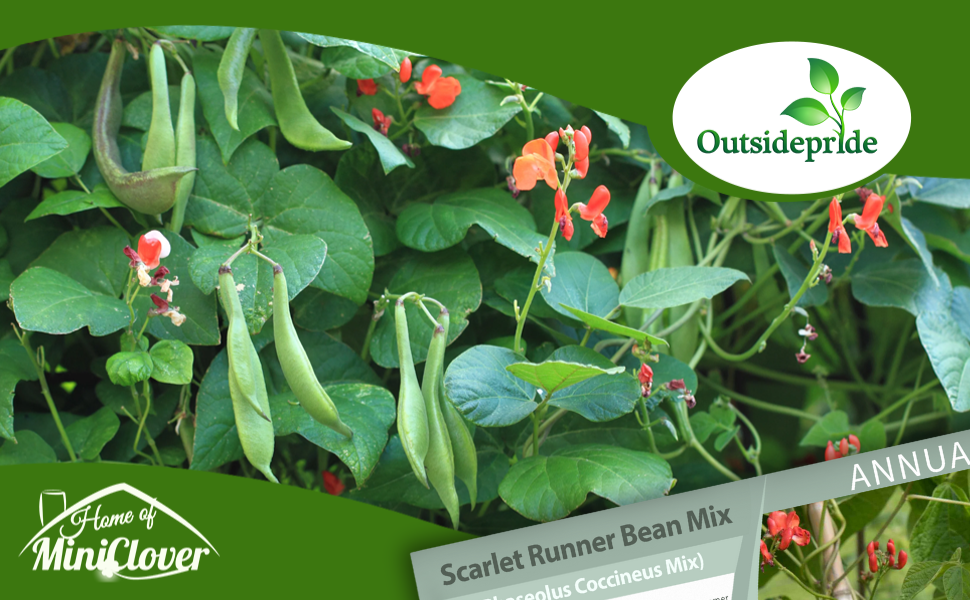
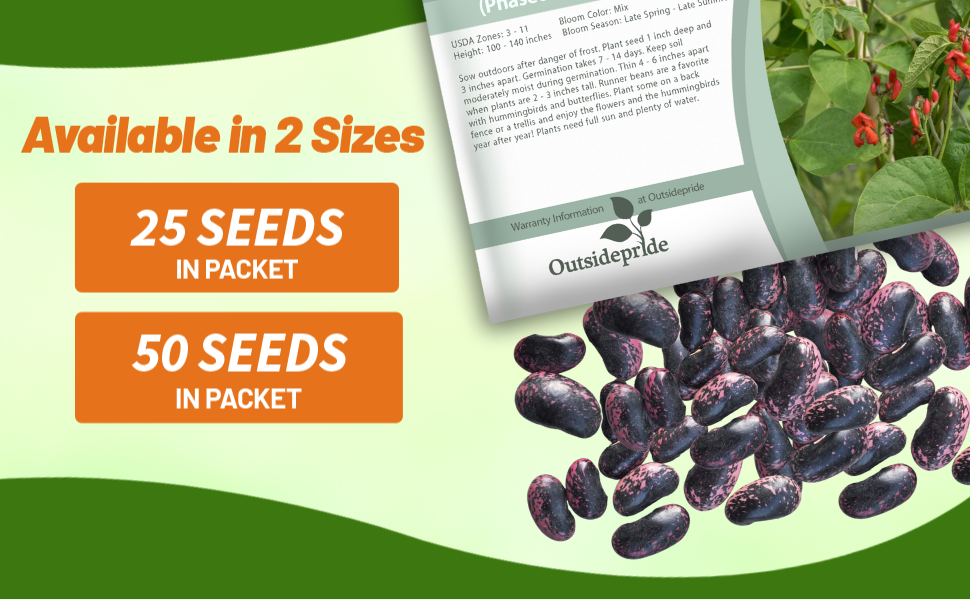
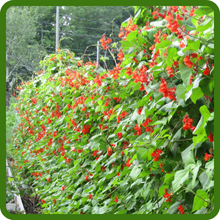
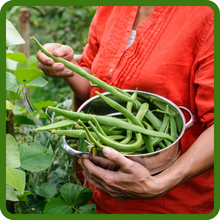
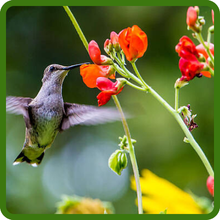
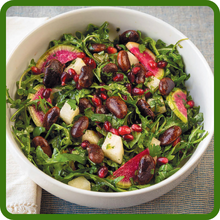
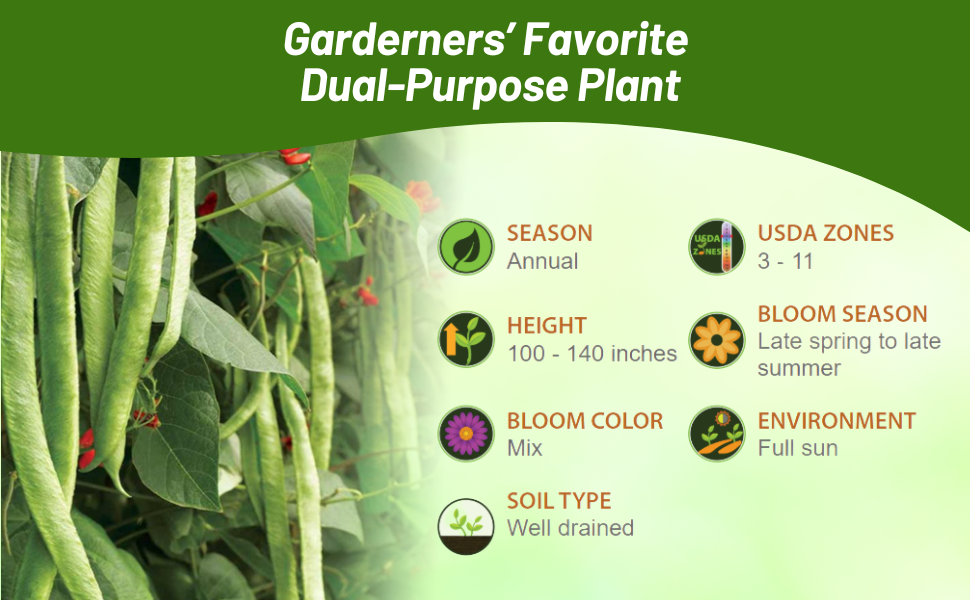
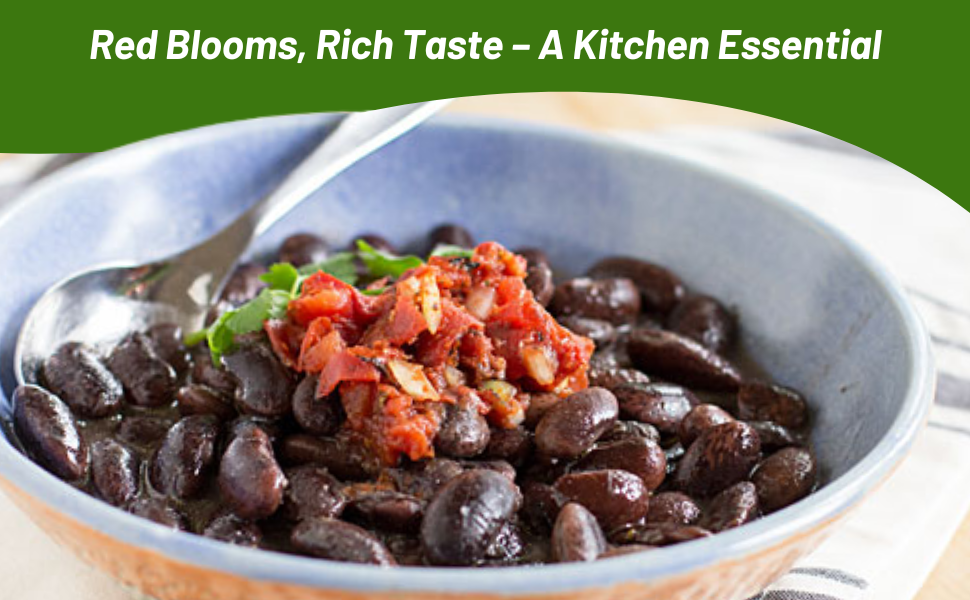
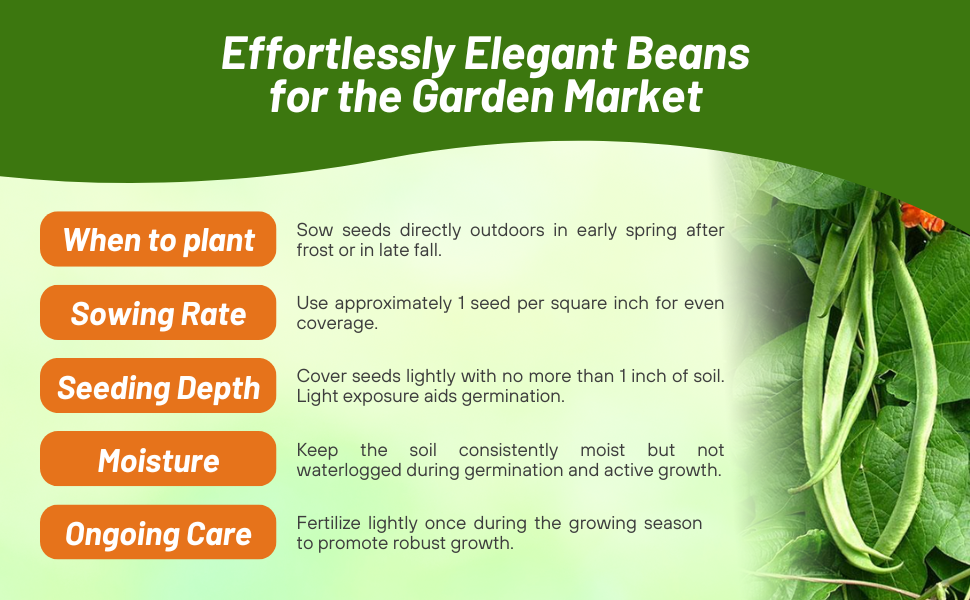
Scarlet Runner Bean Mix (Phaseolus Coccineus Mix) - Every gardener should try growing Scarlet Runner Beans seeds. This unique plant is a decorative runner beans mix with colorful beans, three flower colors and edible young pods. Here are some very interesting facts about Phaseolus Coccineus Scarlet Runner:
- They are nutritious, good and healthy to eat
- Have a more distinctive flavor than French beans
- You can eat the fresh pods after cooking, or harvest seeds from older pods to cook as haricot beans
- They are often prolific croppers - with a freezer you can grow enough to last many months
- They easily grow in odd spaces amongst flowers, etc...
- Scarlet Runner Beans also have attractive flowers
- Flat runner beans are not stocked fresh in small fruit and vegetable shops, or in tins or frozen packs
- Like other plants of the pea family this crop leaves your soil enriched in nitrogen
Scarlet Runner Beans have brilliant red flowers that last throughout the summer. This wonderful mix has brown, purple, and red flamed beans as well as white. Flowers are scarlet, white, and bi-color red and white. The blossoms are less than an inch across and grow in clusters. The edible beans grow up to a foot long and are especially good when picked young. Pick them often to promote continued flowering. The Scarlet Runner Bean vine will quickly and brilliantly cover fences, trellises and other garden structures and will climb 10 - 12 feet.
Sow Scarlet Runner Beans seeds outdoors after all danger of frost has passed. Plant Phaseolus Coccineus seed 1 inch deep and 3 inches apart. Germination takes 7 - 14 days. Keep the soil moderately moist during germination. Thin 4 - 6 inches apart when plants are 2 - 3 inches tall.
Runner beans are a favorite with hummingbirds and butterflies. Plant some on a back fence or a trellis and enjoy the flowers and the hummingbirds year after year! Plants need full sun and plenty of water. Growing Scarlet Runner Beans is fun and rewarding!
Common Questions
What are some good companion plants for scarlet runner beans?
Plants such as basil, borage, catnip, dill, monarda, oregano, rosemary, summer savory and nasturtiums are great companion plants for scarlet runner beans.
Are there plants I should not plant with scarlet runner beans?
Yes, do not plants near garlic, onions, chives, leeks, scallions, shallots, peppers, wormwood, fennel, broccoli, cabbage, kohlrabi, beets, sunflowers, tomato’s or gladioli.
Do I need to fertilize my plants?
No, beans are considered soil builders and rarely need any fertilizers during the growing season.
Planting Directions
TEMPERATURE
65F
AVERAGE GERM TIME
7 - 14 days
LIGHT REQUIRED
Yes
DEPTH
1/8th inch
SOWING RATE
1 - 2 seeds per plant
MOISTURE
Keep seeds moist until germination
PLANT SPACING
12 inches
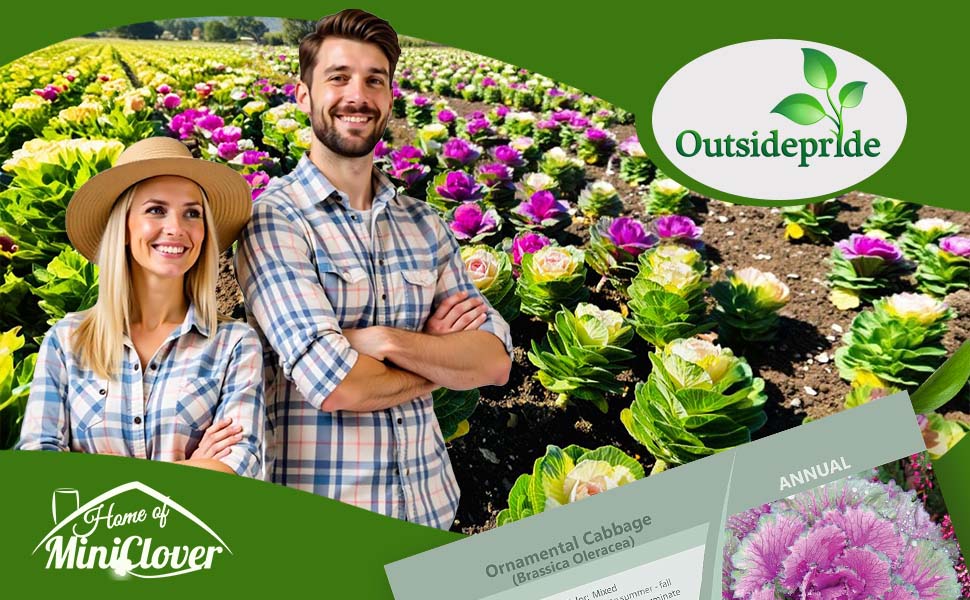
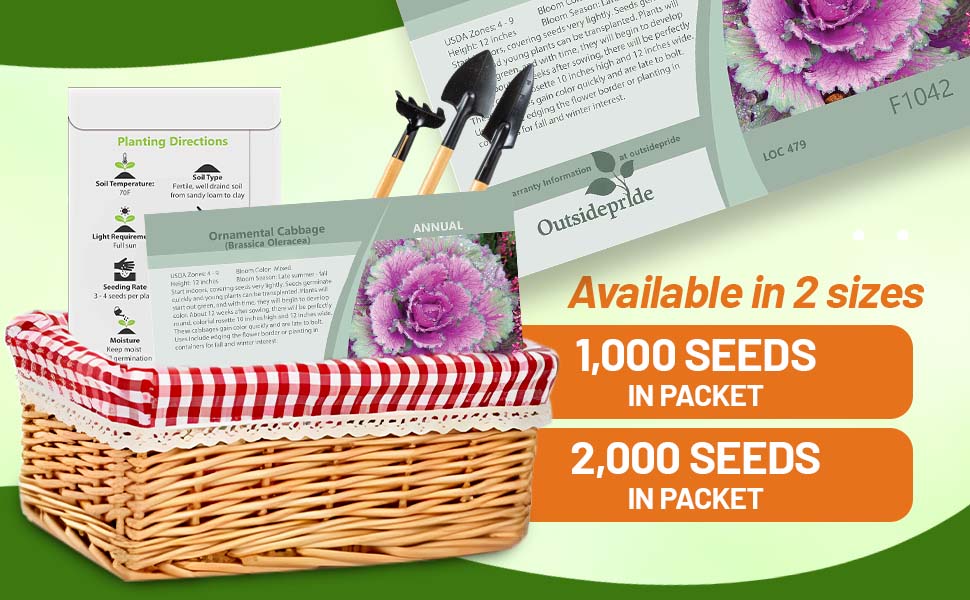
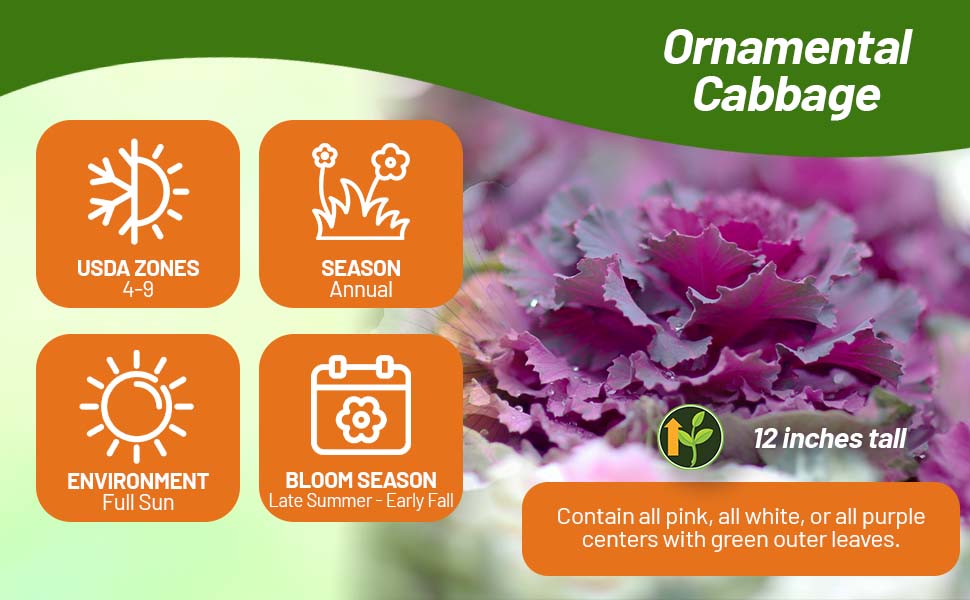
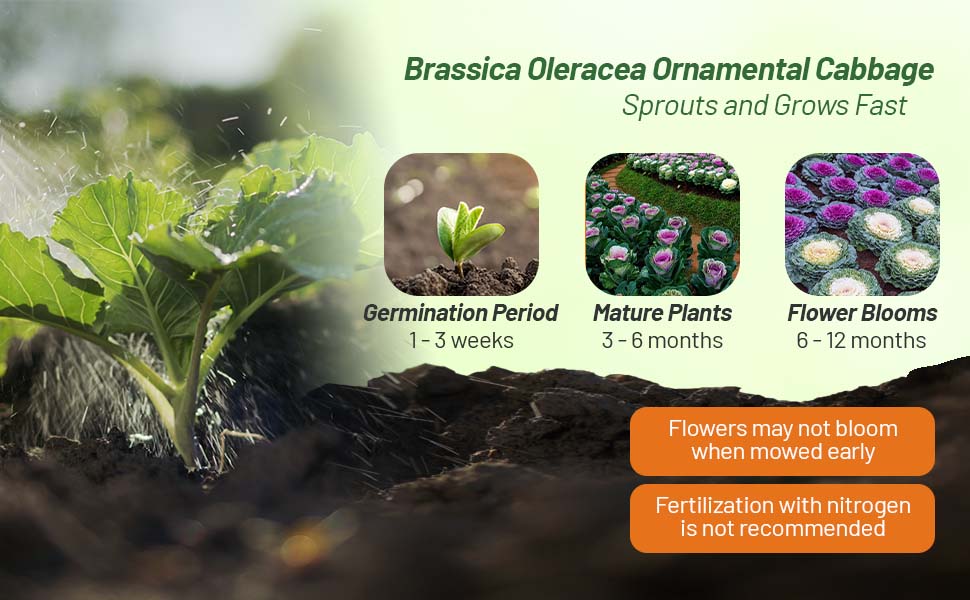
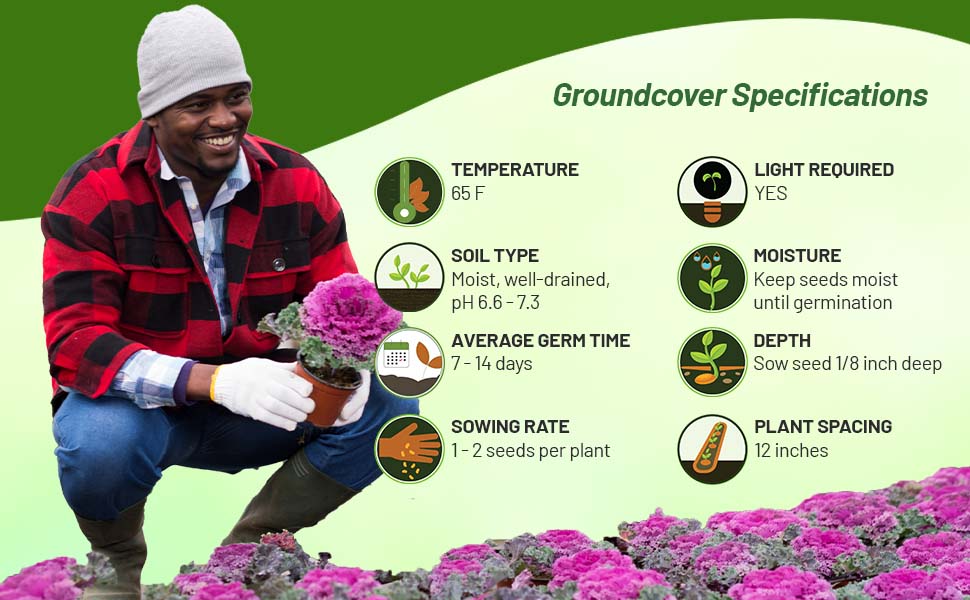
Ornamental Cabbage (Brassica Oleracea) - Start Ornamental Cabbage seeds to create a colorful bed that is cold tolerant and easy-to-maintain. Ornamental Cabbage uses include edging the flower border or planting in containers for fall and winter interest. These Ornamental Brassica plants contain all pink, all white, or all purple centers with green outer leaves. Nothing looks more elegant or stands out more beautifully in the fall than Ornamental Brassicas.
Just start Ornamental Brassica seeds indoors, covering the flower seeds very lightly. Ornamental Cabbage seeds germinate quickly and the young plants can be transplanted. Ornamental Cabbage plants will start out green, and with time, they will begin to develop color. About 12 weeks after sowing the Ornamental Cabbage seeds, there will be a perfectly round, colorful rosette 10 inches high and 12 inches wide. These cabbages gain color quickly and are late to bolt.
Common Questions
How is ornamental cabbage used in the landscape?
Ornamental cabbage is perfect for extended fall and winter color in your gardens, in mass plantings, as edging or in containers. They are also used in floral arrangements.
What are some good companion plants for ornamental cabbage?
These plants combine nicely with asters, heuchera, chrysanthemums, pansies, viola’s, evergreen shrubs and dusty miller cineraria.
Are plants toxic for my animals?
It can be toxic for some animals such as livestock when consumed in large quantities.
How long do plants last?
Typically, plants will last until the weather becomes too warm. Longevity is dependent upon temperatures. Plants will start to decline when temperatures average above 60 degrees F.
Planting Directions
TEMPERATURE
70 - 75F
AVERAGE GERM TIME
10 - 16 days
LIGHT REQUIRED
No
DEPTH
Plant seed 1/4 inch deep
SOWING RATE
Soak overnight in cold water or file a tiny notch in the seed coat bef...more Soak overnight in cold water or file a tiny notch in the seed coat before sowing 1 - 2 seds per plant...less
MOISTURE
Keep seeds moist until germination
PLANT SPACING
12 inches

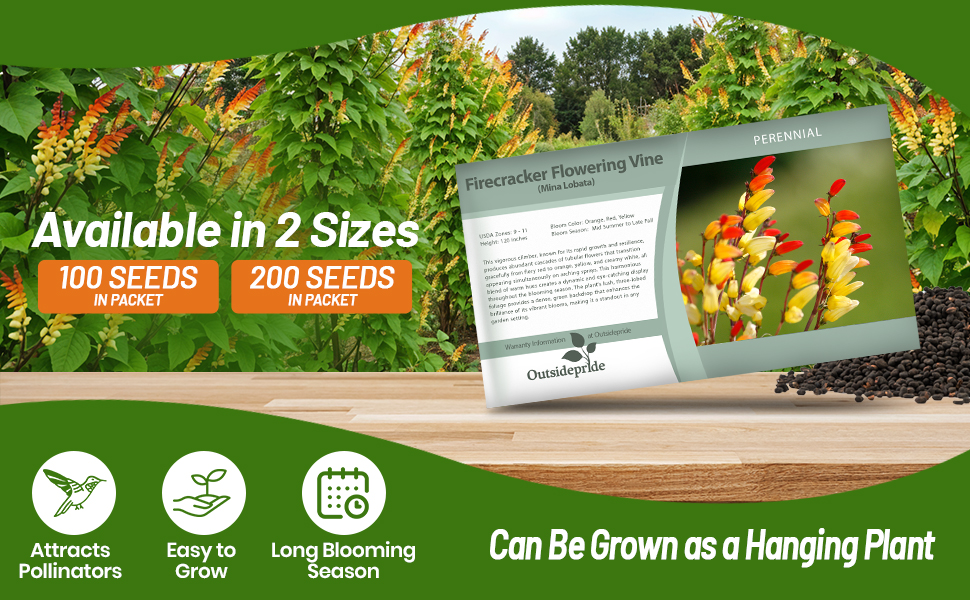
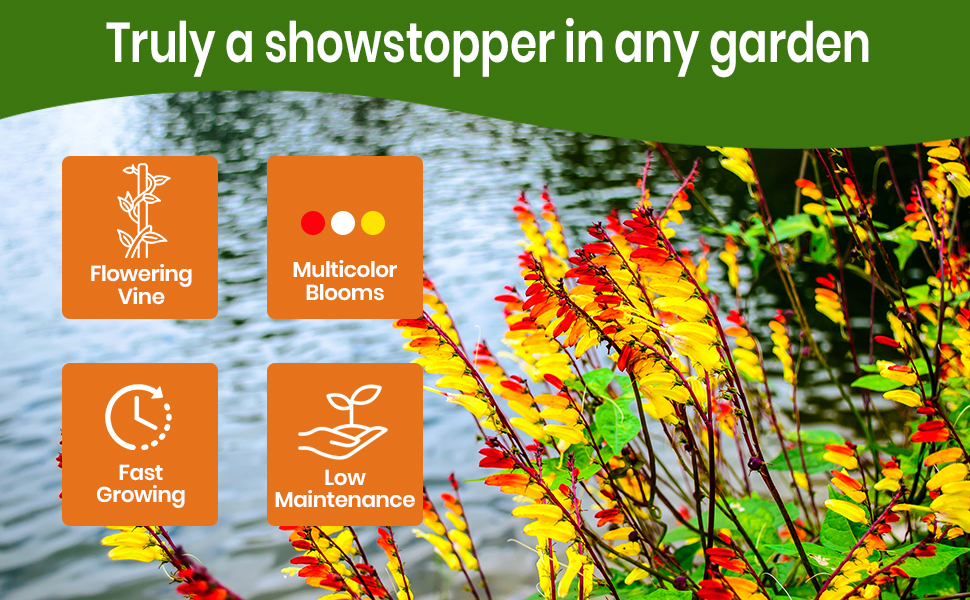

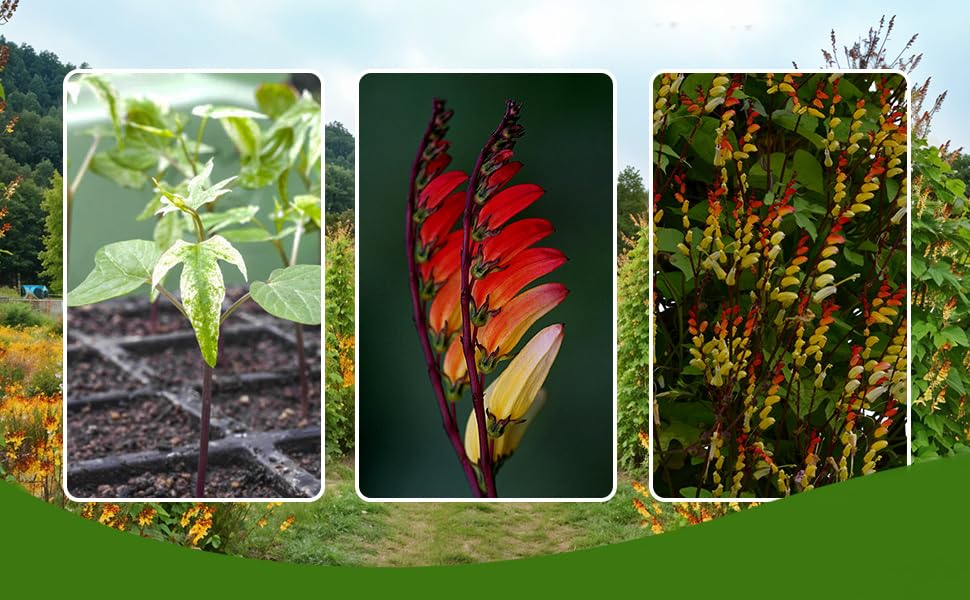
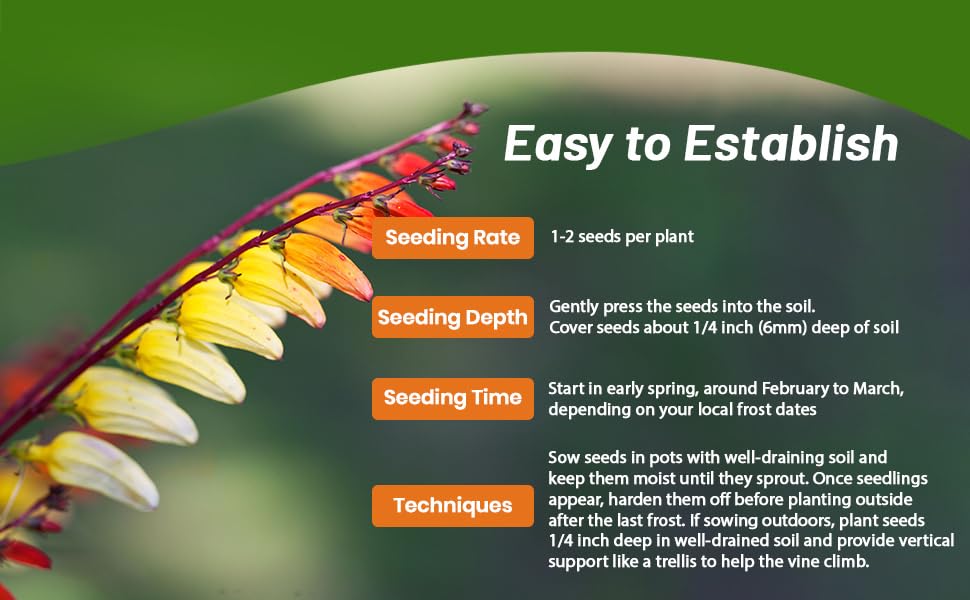
Firecracker Vine (Mina Lobata) - Start Mina Lobata seeds for this impressive vine that will attract lots of attention. Mina Lobata vine is a tender perennial that is typically grown as an annual. Mina Lobata has many common names: Firecracker Vine, Fire Vine, Spanish Flag Vine, and Exotic Love Vine. This plant also has a synonymous botanical name of Ipomoea Lobata. The early Spanish Flag flower is reddish-orange, fading to orange, yellow, and white flowers in mid-summer to fall. This member of the morning glory family produces masses of dazzling 1 - 2 inch tubular flowers that mature and grow on this climbing vine that can reach 10 feet tall. Firecracker Vine has twining stems which are best grown on wire or lattice frames, and when it is in full bloom, it will never be forgotten! Exotic Love Vine Mina Lobata is incredibly showy, and it deserves to be the focal point of your flower garden.
Growing Mina Lobata seed is very rewarding! Soak the seed overnight in warm water or nick the flower seed with a knife to break the outer coat of the seed. For the earliest blooms, start the flower seed indoors. Cover the Spanish Flag plant seeds with 1/4 inch of soil and keep moist. Transplant Mina Lobata seedlings outside after frost danger has passed. Firecracker Vine seeds can also be started directly outdoors in a prepared seed bed once temperatures have warmed in the spring.
Common Questions
Will firecracker vine attract pollinators?
Yes, this flower attracts bees and hummingbirds.
Do I need to fertilize my plants?
For the best showing of blooms, you will need to fertilize your plants.
Do I need to prune my mina lobata?
For a second flush of blooms, you will need to prune back your plants. If your plants are thick and heavy, prune in early to mid-summer to give your plants plenty of time to prepare for autumn blooms.
Do I need support structure for my plants?
Yes, these are vining plants that need a structure to grow up. They are heavy plants so be sure to use something solid for your structure.
















